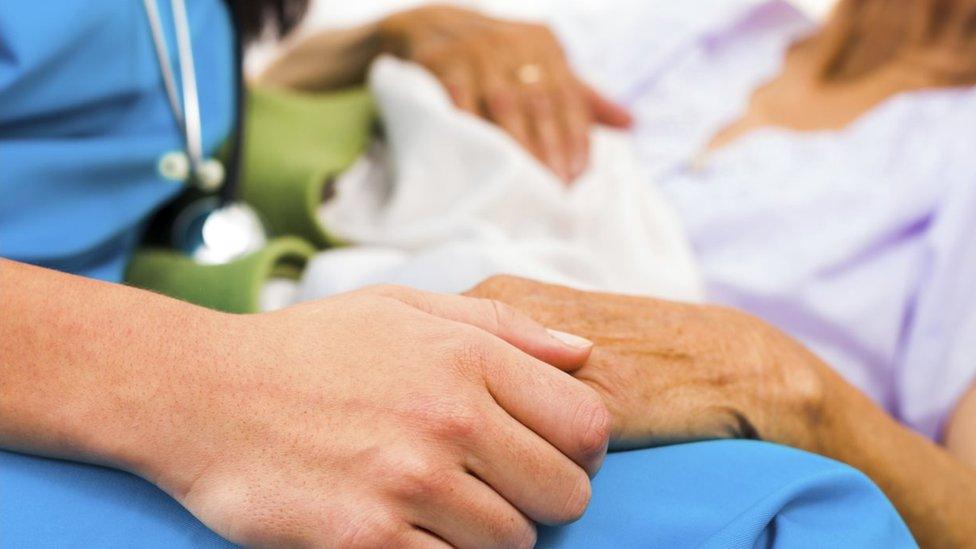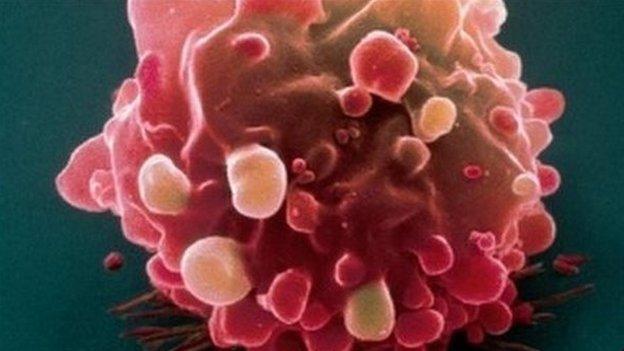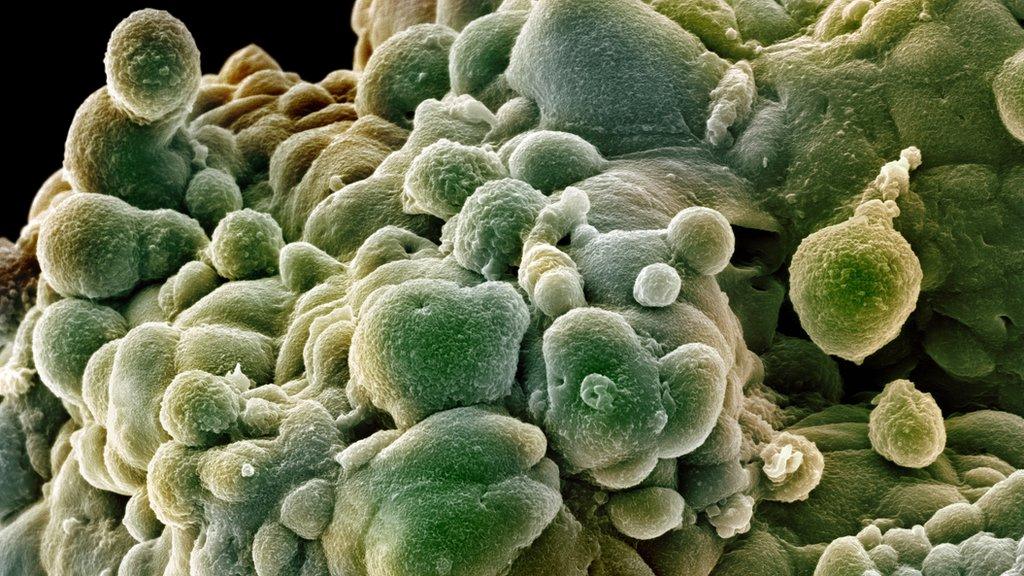Cancer death rate in Scotland drops by 11% over decade
- Published

The report said the number of deaths had not fallen due to an increasing elderly population who were more likely to be diagnosed with the disease
The death rate for cancer has fallen by 11% in Scotland over the last 10 years, according to the latest figures.
Although the rate of death has fallen, the actual number of deaths has not, because cancer is common in the elderly and the population is ageing.
Lung cancer is the most common cause of death, followed by colorectal cancer.
Death rates vary by the type of cancer - with death rates due to breast cancer and stomach cancer falling, but rising dramatically for liver cancer.
The cancer mortality figures, published in a new report from ISD Scotland, external, show that the disease claimed the lives of 15,746 people last year.
More than 530 of those deaths were due to liver cancer, with the mortality rate for this form of the disease increasing by 43% between 2004 and 2014.
The report said the rapid rise in the number of Scots dying from liver cancer was due to more people being diagnosed and poor survival rates - with alcohol one of the main risk factors for developing it.
The figures also showed:
Cancer mortality rate for all forms of the disease dropped by 15% for men and 6% for women, over the decade
Death rates in most deprived areas two-thirds higher than in affluent communities
Lung cancer remained biggest killer - 4,117 deaths in 2014 (2,119 males and 1,998 females)
Death rate for prostate cancer decreased by 10.3% over 10 years to 2014
Breast cancer was second most common cause of cancer deaths in females - number of diagnoses increasing, partly because of better detection
Mortality rate for breast cancer has decreased by 20% over decade - said to be due to both screening and advances in treatment.
Early detection
Gregor McNie, senior public affairs manager for Cancer Research UK in Scotland, said: "These figures show cancer death rates are falling which, thanks to research, reflects that treatments are more effective. A cancer diagnosis is no longer the death sentence it was once feared to be.
"These new statistics also show the number of deaths from cancer is increasing and this is because people are living longer and so are more likely to get cancer.
"Diagnosing cancer earlier is also one of the most powerful ways to beat it. The chances of successful treatment are higher if the disease is found at an early stage."
Health Secretary Shona Robison said: "This reduction is due to improvements in early detection, through raised awareness and routine screening as well as the development of more specialist care and effective treatments.
"Of course there is more work to be done and we recognise that there is variation in mortality rates between males and females and certain tumour types."
Ms Robison stressed the importance of early diagnosis in reducing cancer mortality.
She added: "That is why we have invested £39m in our Detect Cancer Early programme.
"The main aim of the programme is to encourage all people, regardless of their personal circumstances, who have any unusual or persistent changes to their body, to visit their GP."
Janice Preston, Macmillan Cancer Support's head in Scotland, said: "It's good news more people are surviving cancer.
"There are currently 220,000 people in Scotland who've had a cancer diagnosis and that's expected to reach almost 360,000 by 2030.
"We need the Scottish government to deliver a cancer plan that sets out how people living with the long-term impacts of cancer will get the medical, emotional, practical and financial help they need."
- Published16 November 2015

- Published3 November 2015

- Published28 April 2015

- Published6 January 2015

- Published30 October 2014
